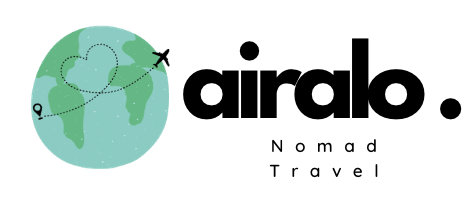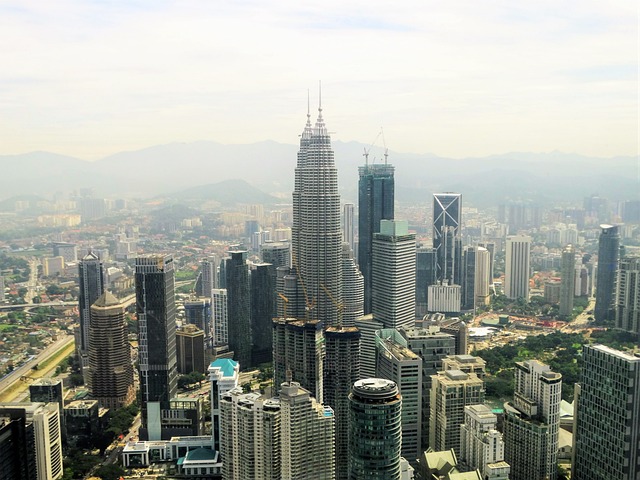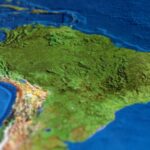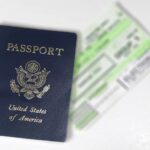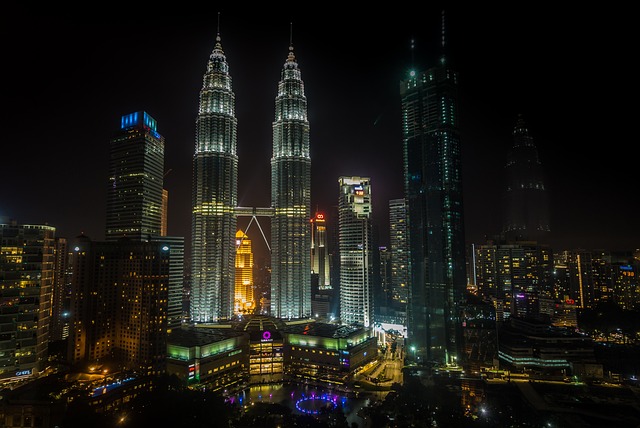
Malaysia is an increasingly popular destination for global digital nomads, attracting a large number of remote workers, freelancers and entrepreneurs with its beautiful natural environment, low cost of living and efficient digital infrastructure. For digital nomads who plan to live and work in Malaysia for a long time, it is very important to understand and apply for the “Malaysian Digital Nomad Visa” (commonly known as the “MM2H” visa). This article will provide you with a detailed guide to help you better understand and apply for this visa.
1. Digital Nomad Visa Overview
MM2H visa background
Malaysia’s “Malaysia My Second Home” (MM2H) visa was first established in 2002 to attract foreigners to live in Malaysia for a long time, especially retirees and high-net-worth individuals. With the rise of the global remote working trend, more and more digital nomads, remote workers and freelancers are starting to pay attention to this visa. Although MM2H was not originally designed for digital nomads, over time it has become ideal for these groups.
Visa type and validity period
- long term validity: The MM2H visa is valid for up to 10 years, which is a major feature of this visa. Compared with short-term work visas in many countries, the 10-year long-term visa provides holders with greater stability and security.
- Renewability: The MM2H visa not only provides a 10-year first-time residence permit, but the holder can continue to live in Malaysia through renewal after the visa expires. This means that digital nomads and other applicants can enjoy the convenience of living and working in Malaysia for a long time as long as they meet the renewal conditions.
Main advantages of visa
- Free entry and exit into Malaysia
One of the great advantages of the MM2H visa is that it allows the holder to travel freely in and out of Malaysia during the validity period of the visa. This is extremely important for digital nomads who need to travel frequently, return home regularly, or have other international business needs. Compared with visas from other countries, the MM2H visa does not require re-application or approval every time you enter the country, which greatly saves time and energy. - Not required to work in Malaysia
Unlike work visas in many countries, the MM2H visa does not require the holder to work for a local company in Malaysia. It is not subject to employment restrictions, which means that holders can earn income through remote work, online entrepreneurship, freelancing, etc., without having to consider whether they need to sign an employment contract with a local enterprise in Malaysia. For most digital nomads, this flexibility is undoubtedly the biggest attraction of the MM2H visa. - Flexible housing policies for digital nomads
The MM2H visa is ideal for digital nomads who rely on remote work and enjoy flexible work arrangements. Whether settling in Malaysia or working as part of a global job, digital nomads enjoy the local quality infrastructure, low cost of living, and rich cultural and natural landscapes. Malaysia’s low tax policy and good network coverage further enhance the appeal of this option. - Cost-effective cost of living
Malaysia offers a relatively low cost of living compared to most popular places to live around the world. Whether it is renting, food, transportation, or medical expenses, Malaysia is far lower than many developed countries. For digital nomads, lower living expenses mean a better balance between work and life, while also enjoying higher cost-effectiveness in terms of quality of life. - High-quality medical and educational resources
Malaysia’s medical system is very complete, with both public and private hospitals providing high-quality medical services, especially in big cities such as Kuala Lumpur and Penang. Such medical coverage is an important consideration for long-term digital nomads and their families. At the same time, Malaysia’s education system has also developed in internationalization and is suitable for foreign families with children.
Applicable people
Digital Nomads and Remote Workers
- Remote workers and freelancers
The MM2H visa is especially friendly to remote workers and freelancers. Applicants do not need to be restricted by a local work permit and only need to provide financial proof to reside in Malaysia and continue to work remotely or freelance globally. This feature is ideal for digital nomads who want to live and work in different locations around the world. Especially for individuals who are not dependent on local clients or employers, MM2H provides an ideal long-term residence option. - Multinational Company Employees and Entrepreneurs
Many multinational company employees or entrepreneurs also choose Malaysia as a base to live and work, especially those companies engaged in international business. Malaysia’s strategic location and proximity to many important Asian markets provide a wealth of business opportunities for multinational companies and entrepreneurs. The MM2H visa’s flexibility and exemption from local employment requirements make it an ideal choice for these groups.
retirees and families
- Suitable for retirees
The MM2H visa was originally designed for retirees, so this visa is also very friendly to seniors. Malaysia’s low cost of living, pleasant climate and rich natural landscape make it one of the most popular destinations for retirees around the world. Many retirees from Europe, North America and other regions choose Malaysia as their second home. - Suitable for families with family
The MM2H visa is also suitable for foreign families coming with their families. In addition to providing flexible living conditions, Malaysia’s medical and educational resources also provide foreign families with peace of mind.
Application and renewal process
First time application requirements
- financial requirements
Applicants must provide a certain amount of bank deposits or proof of monthly income to prove that they have sufficient financial ability to support themselves and their families. In the past, applicants were required to demonstrate a minimum monthly income of US$1,500 (approximately RM6,000) and have a deposit of at least RM350,000 (approximately US$75,000) in a bank account in Malaysia. - health certificate
Applicants are required to provide proof of physical health and usually undergo a physical examination through a recognized medical institution in Malaysia. This certification is intended to ensure that the applicant does not have major communicable diseases. - No criminal record
Applicants are also required to provide a criminal record certificate from their country of origin or place of long-term residence to ensure that there are no illegal activities. - Other supporting documents
Including passport, photos, marriage certificate (if applicable), etc.
Renewal conditions
Renewal requirements for the MM2H visa are generally simple, with applicants required to provide updated financial and health certificates. After successful renewal, the applicant can continue to enjoy the right of residence for 10 years.
2. Visa types suitable for digital nomads
For digital nomads, choosing the right visa is key to whether they can successfully live and work in Malaysia. Here are several visa types suitable for digital nomads, including:MM2H visaandsocial visit visais the most common choice.
MM2H visa: ideal for long-term residence and remote work
**MM2H Visa (Malaysia My Second Home Program)** is a visa program launched by the Malaysian government to attract foreigners to live long-term, especially for digital nomads who want to live in Malaysia for a long time and work remotely. Compared with other visa types, the MM2H visa provides digital nomads with more freedom and convenience, especially when it comes to working and living.
- Visa validity and renewal One of the biggest advantages of the MM2H visa is its long-term validity. The visa is valid for up to 10 years and can be renewed multiple times. Therefore, digital nomads do not have to apply for a visa every year and can enjoy the stability of long-term residence and work. Moreover, the renewal process is relatively simple and does not require the resubmission of numerous documents. Holders can choose whether to continue to reside in Malaysia based on their personal needs and circumstances.
- Remote work and freelancing The MM2H visa allows holders to legally reside in Malaysia and work remotely, freelance or run their own online business. Digital nomads can serve global clients without working for a local company in Malaysia. This flexibility is especially important for freelancers or online business owners who need to work across time zones. However, it should be noted that the MM2H visa does not allow holders to work formally in local companies in Malaysia. That is to say, visa holders cannot be employed by companies in Malaysia. Therefore, all work income must come from foreign customers or Online platform.
- Income and asset requirements To apply for the MM2H visa, applicants need to meet certain financial conditions. For example, applicants need to prove that they have sufficient monthly income or savings to support life in Malaysia. Specifically, applicants need to provide a monthly fixed income of at least RM10,000 (approximately US$2,100), or have at least RM350,000 (approximately US$75,000) in savings. In addition, applicants are required to meet other background checks and health checks to ensure they are suitable for long-term residence in Malaysia.
- No work restrictions An important feature of the MM2H visa is that there are no restrictions on work location or work content. Digital nomads can freely choose how and where they work, whether they are providing consulting services to customers through the Internet, conducting online teaching, or operating an e-commerce platform. With no local work restrictions, digital nomads can work flexibly without hindrance, improving work efficiency and quality of life.
- health insurance requirements People holding MM2H visas need to purchase local health insurance in Malaysia to ensure that they can receive basic medical coverage during their stay. This requirement is intended to reduce pressure on the public healthcare system while ensuring the health of visa holders is safeguarded. Generally speaking, health insurance does not need to be too expensive, but it must cover basic medical services such as hospitalization and outpatient services.
- Visa flexibility The MM2H visa is a very attractive option for digital nomads who intend to live in Malaysia long-term and work remotely. Foreigners holding this visa can enjoy the convenience of entering and exiting Malaysia freely. Whether you are planning a short-term trip to another country or want to live in Malaysia for a long time, the MM2H visa offers great flexibility and convenience.
Social Visit Visa: Short-Term Remote Work and Exploring Options
For digital nomads who plan to stay for a short period of time and test their adaptability to life in Malaysia, the Social Visit Pass is an ideal option. The application process for this visa is relatively simple and is suitable for digital nomads who stay for a short period of time, travel, and work remotely in Malaysia.
- Applicable scenarios Social visit visas are suitable for a variety of short-term purposes, including but not limited to tourism, family visits, short-term study or short-term business activities. The Social Visit Visa is a convenient option for digital nomads who are planning a short stay and want to try working remotely in Malaysia. Normally, the social visit visa allows the holder to stay in Malaysia for up to 3 months, but it can be extended if necessary.
- Visa application is easy The application process for a social visit visa is simple and quick, and usually does not require complex documentation or approval processes. Applicants only need to provide basic materials such as valid passports, air tickets, and proof of accommodation, and can usually be approved within a few days. Compared with other long-term visas, the application process for the Social Visit Visa is simpler and does not have excessive financial requirements.
- work restrictions The social visit visa does not allow the holder to work for a local company or engage in other formal business activities in Malaysia. Holders can engage in remote work or freelance work, but must ensure that all work income comes from overseas and not from local Malaysian enterprises. For digital nomads, this means that this visa can be used to work remotely for a short period of time and experience the working and living environment in Malaysia, but they cannot be employed or work for a Malaysian company.
- Suitable for transitional residence For some digital nomads, the Social Visit Visa can also serve as a transitional visa to help them evaluate whether they are suitable to live in Malaysia long-term. During this period, digital nomads can experience the living environment, working atmosphere and cultural characteristics in Malaysia, and prepare for possible future application for long-term residence options such as MM2H visa.
- Flexibility and extension The social visit visa can extend the stay according to specific circumstances, usually for 3 months at a time. Therefore, for those digital nomads who are yet to decide if they want to stay in Malaysia long-term, the Social Visit Visa provides the flexibility to tailor their stay to suit their needs.
Other short-term visa options
In addition to the MM2H visa and social visit visa, Malaysia also provides some other types of short-term visas. Although these visas are not specifically designed for digital nomads, they are also suitable for digital nomads in certain circumstances.
- working holiday visa: Applicable to young people from some specific countries who can combine short-term work and tourism in Malaysia. For digital nomads, working holiday visas, although limited in scope, can still provide opportunities for some short-term work and freelance work.
- business visa: Digital nomads can apply for a business visa if they plan to attend conferences, business negotiations, or provide consulting services to overseas clients. This visa is for remote workers who need short-term face-to-face interactions with clients or partners.
- 3. Conditions for applying for MM2H visa
- Malaysia’s MM2H visa is a relatively relaxed long-term residence program, but applicants still need to meet a series of specific conditions. These conditions are designed to ensure the applicant’s financial stability, health, and legitimacy. The following are the detailed conditions for applying for MM2H visa:
- 1. Financial requirements
- Deposit requirements:
The first financial requirement for applying for an MM2H visa is to provide proof that the applicant has a deposit of at least RM 150,000 (approximately US$35,000) in a Malaysian bank account. This requirement is intended to ensure that applicants have sufficient funds to support long-term residence in Malaysia. For retirees, the savings requirement is usually higher, with a requirement of RM 350,000 (approximately US$75,000). Deposits must be available funds and not simply reflected in the value of the asset. Applicants can choose to deposit this deposit in a local bank in Malaysia and will need to provide proof of deposit in the bank account during the application process. - Monthly income requirements:
Another key financial condition is the monthly income requirement. Applicants must prove that their monthly stable income is no less than RM 10,000 (approximately US$2,300). Sources of income can be freelancing, pensions, investment income, profits from overseas businesses, or other stable sources of income. Proof of income usually requires providing bank statements, tax returns, or other formal income documentation. If the applicant is a business owner or freelancer, tax returns, contracts or proof of client payments may be required. - 2. Health requirements
- All persons applying for MM2H visa must provide a health certificate. This certificate needs to be issued by a registered medical institution in Malaysia, indicating that the applicant does not have infectious diseases, such as tuberculosis or AIDS, and does not have other serious health problems. For older applicants, additional health examination results may be required, including examination reports for common geriatric diseases such as heart disease and hypertension. Applicants also need to purchase medical insurance, which usually includes basic coverage such as hospitalization, outpatient care, and emergency medical treatment.
- 3. Age requirements
- The MM2H visa does not have strict age restrictions on applicants, but for retired people, the applicant is usually required to be over 50 years old. For applicants under the age of 50, the Malaysian government has stricter financial requirements, requiring higher standards for savings and monthly income. In addition, applicants need to demonstrate that their plans to live in Malaysia meet their needs and health conditions. If the applicant is a young digital nomad under the age of 50, they still need to provide sufficient financial security to prove that they can support life in Malaysia and not rely on Malaysia’s public resources.
- 4. Background check
- All applicants for the MM2H visa must pass a background check by the Malaysian Immigration Department. The main purpose of this investigation is to check whether the applicant has a criminal record or other issues that may threaten national security. Background checks usually require applicants to provide detailed personal information, including past residence history, education background, work experience, etc. Applicants may be required to provide a criminal record certificate from their country of residence to prove that they have not committed any illegal activities. For applicants from some high-risk countries, background checks may be more stringent, and the Malaysian Immigration Department reserves the right to reject applicants who do not meet the requirements.
- 5. Fund freezing period and living arrangements
- Fund freeze period:
Applicants are required to deposit a certain amount in a Malaysian bank, and this deposit must remain frozen, usually RM 150,000 or more, until the end of the visa validity period or early termination. The freezing period is usually 10 years, during which the funds cannot be used and can only be withdrawn in emergencies. This requirement is to ensure that the applicant does not become a public charge while residing in Malaysia. - Living arrangements:
Applicants are also required to provide proof of residential address in Malaysia. Typically, applicants are required to provide a lease contract or property certificate to prove that they have appropriate accommodation arrangements. Living arrangements include, but are not limited to, guarantees of housing, transportation, medical care and other infrastructure. - 6. Additional personal planning and support
- In addition to basic financial, health and background requirements, applicants are also required to submit a personal plan outlining their purpose of residence in Malaysia, work arrangements and future life plans. This section helps the Immigration Bureau understand the applicant’s long-term residence intention and ensure that it meets the policy objectives of the MM2H visa. For digital nomads, you can provide a remote work contract or cooperative project when applying to prove that you have a stable source of income.
- 7. Application process and time
- The application process for the MM2H visa is relatively cumbersome and requires the submission of complete documents, including financial certificates, health certificates, and no criminal record certificates. The application usually takes 3-6 months to complete and needs to be reviewed by the Malaysian Immigration Department. Once approved, the applicant will receive an approval notification and be able to handle visa and residency procedures.
4. Application process
Although the process of applying for Malaysia’s MM2H visa is relatively intuitive, it still involves multiple steps and detailed material preparation. Each step requires ensuring that submissions are complete and compliant, so understanding the details of the entire process is critical. The following is the detailed process for applying for MM2H visa:
1. Prepare materials
Applicants first need to prepare a series of necessary materials, which will help the Immigration Bureau assess the applicant’s qualifications and abilities. Specific materials include:
Proof of personal identity:
Applicants need to provide a valid copy of their passport, which is usually valid for at least 12 months. In addition, 2-3 recent passport photos are required, and the photos should meet the requirements for Malaysian visas.
Financial Proof:
Applicants must provide proof of financial ability to prove that they have sufficient funds to support long-term residence in Malaysia. These financial certificates include bank deposit certificates, monthly income certificates, and other relevant financial information, such as investment income, rental income, etc.
- Bank deposit certificate: Applicants are required to provide proof of deposit of at least RM 150,000 (approximately US$35,000). If you are a retired person, this amount will be higher. Proof of deposit usually requires a letter of proof of deposit stamped by the bank.
- Proof of monthly income: Applicants also need to submit relevant documents proving that they have a monthly income of at least RM 10,000 (approximately US$2,300). This could be a pay stub, tax slip, or proof of payment provided by the client.
Health certificate:
All applicants must provide a health certificate issued by a local registered hospital or doctor in Malaysia, proving that the applicant is free of infectious diseases and other serious health problems. A clean bill of health usually requires a comprehensive physical exam, including blood tests, chest X-rays, liver and kidney function tests, and more.
Proof of no criminal record:
Applicants are required to provide a criminal record certificate from their country of residence to prove that they have no criminal record in the past. A criminal record certificate usually needs to be issued by the local police department and translated into English.
Other auxiliary documents:
If the applicant is applying as a family member, the birth certificate, marriage certificate and other relevant documents of the spouse and children must also be provided. If the applicant plans to purchase a property in Malaysia, he or she is also required to provide property-related certificates.
2. Submit application
There are two main ways to submit an application:
Through Malaysian embassies abroad:
Applicants can submit applications for MM2H visas through Malaysian embassies or consulates abroad. The embassy or consulate abroad will provide applicants with visa application forms and assist in reviewing relevant materials. Applicants need to make an appointment and go to the embassy in person with all documents to submit their application.
Via MM2H official website:
Applicants can also choose to submit their application directly online through the official MM2H Malaysia website. The official website provides detailed application steps, form downloads and detailed requirements for material submission. The materials uploaded by the applicant through the official website will enter the system of the Malaysian Immigration Department for further processing.
When submitting materials, ensure that all documents are complete and meet the requirements to avoid delays or rejections due to incomplete or incorrectly formatted documents. The Immigration Department usually conducts strict reviews of documents for authenticity and completeness.
3. Review and Approval
After submitting the application, the Malaysian Immigration Department will review the applicant’s materials. Typically, this process lasts 2 to 3 months, and the specific time varies depending on the individual circumstances of the applicant. The review process includes:
Document review:
The Immigration Bureau will check whether all documents submitted by the applicant meet the requirements, especially the validity and authenticity of financial certificates, health certificates and criminal record certificates. Any missing or inconsistent documents may cause the application to be delayed or rejected.
Request for additional information:
If the Immigration Bureau finds that the information is insufficient or has questions during the review process, the applicant may be asked to provide more information or submit additional documents. Common requirements include supplemental tax returns, proof of income, proof of residency, etc. Applicants need to provide these additional materials as soon as possible, otherwise the review progress may be affected.
interview:
In some cases, the Malaysian Immigration Department may require applicants to undergo an interview, particularly where complex or unusual circumstances are involved. The interview is mainly to verify the applicant’s background, intentions and their plans to live in Malaysia.
4. Visa approval
Once the application passes review, the Immigration Bureau will approve the MM2H visa and issue a visa approval notification. After the visa is approved, the applicant can do the following:
Apply for a visa:
After being approved, applicants need to go to the Malaysian embassy abroad or apply for a visa through the MM2H official website. At this point, the applicant will need to provide their passport and possibly other documents to complete the final visa issuance process.
Visa validity period:
The MM2H visa is usually valid for 10 years, during which the visa holder can live and work in Malaysia. After the visa expires, the applicant can continue to apply for renewal to extend the period of stay.
5. Advantages of MM2H visa
Malaysia’s MM2H visa offers several unique advantages to digital nomads, making it an ideal choice to live and work in the Southeast Asian region. Here are the main advantages of the MM2H visa, especially for digital nomads who live long-term and work remotely.
1. Long-term residence
One of the best features of the MM2H visa is its long-term validity. This visa is usually valid for 10 years and can be renewed based on personal circumstances, and the renewal process is relatively simple. For digital nomads, the MM2H visa provides a long-term and stable residence option without having to worry about frequent visa renewals or temporary status issues.
- flexibility: Since the MM2H visa is valid for a long time, holders do not need to go through complicated visa extension procedures every year, saving time and energy. Even after living in Malaysia for many years, applicants can continue to stay in this country and enjoy high-quality living conditions.
- Visa renewal: After the applicant’s visa expires, he or she can apply for renewal according to current legal regulations. Generally, the renewal process is relatively simple and can be successfully renewed as long as the applicant continues to meet basic requirements such as financial and health requirements.
- stability: The MM2H visa is undoubtedly an ideal choice for digital nomads who want to live in a country for a long time and maintain stable living arrangements.
2. Loose work rules
The MM2H visa allows applicants to legally reside in Malaysia and earn income by working remotely. For digital nomads, this work flexibility is an extremely important advantage:
- Legalities of working remotely: Digital nomads holding an MM2H visa do not need to work for a local company. As long as it does not involve the local labor market in Malaysia, the holder is free to engage in any form of remote work, whether working for an overseas company or freelancing.
- Diversified income sources: In addition to remote work, certificate holders can also engage in other legitimate business activities, investments, consulting or management work, as long as these activities do not violate visa regulations.
- No employment restrictions: Other types of visas may have restrictions on the type of work or employer, but the MM2H visa allows the holder to freely choose the direction of work or entrepreneurship, making it ideal for digital nomads who need flexible work arrangements.
3. Visas for family members
The MM2H visa is not only available for individuals, applicants can also apply for additional visas for family members, which is particularly attractive for family digital nomads:
- Spouse and children: The MM2H visa allows the applicant’s spouse and children under the age of 21 to apply for the visa together. In this way, digital nomads can live in Malaysia with their families for a long time and enjoy the convenience of living together.
- Family life: For digital nomads who wish to bring their family with them, the MM2H visa provides a flexible option, ensuring that the family can legally reside in Malaysia and enjoy the same benefits as the main applicant.
- Children’s education: If their children live with their parents in Malaysia, parents can choose local international schools or higher education institutions for their children to enjoy Malaysia’s more affordable educational resources.
4. Low cost of living
Compared to many Western countries and other Southeast Asian countries, the cost of living in Malaysia is relatively low, especially when it comes to accommodation, food and transportation. This makes Malaysia an ideal destination for digital nomads:
- stay: The rental market in Malaysia is relatively affordable, especially in popular cities such as Kuala Lumpur, Penang and Johor. Digital nomads can choose from affordable apartments, shared housing or short-term rentals to enjoy a comfortable living environment.
- diet: The cost of eating in Malaysia is relatively low. Street food and meals provided by local restaurants are very affordable and there is a wide variety of food to suit a variety of tastes. Digital nomads can easily enjoy high-quality local cuisine while keeping their dining expenses in check.
- transportation: Malaysia’s transportation system is relatively developed, especially in terms of long-distance buses, trains and low-cost airlines between cities, and the prices are also very affordable. In addition, Malaysia’s public transportation system, such as Kuala Lumpur’s MRT and buses, is extremely convenient and economical.
- Cost-effective medical services: Malaysia’s medical system enjoys a high reputation globally and is relatively affordable. For digital nomads who need regular health check-ups or medical services, Malaysia offers a cost-effective option.
5. Good quality of life
In addition to its low cost of living, Malaysia also offers high-quality living conditions that attract digital nomads from around the world. It has a rich culture, diverse communities, warm climate and modern infrastructure. These factors combine to create an ideal remote working and living environment:
- Cultural Diversity: Malaysia has a rich cultural background and a multiracial society, where foreigners can experience multicultural exchange and integration. Plus, the locals are friendly and helpful, and digital nomads can quickly integrate into the community here.
- Modern facilities: Malaysia has modern urban infrastructure, including high-speed internet, modern shopping malls, comfortable housing and ample entertainment facilities. For digital nomads, convenient working environment and living facilities can improve work efficiency and quality of life.
- Health and Recreation: Malaysia has an abundance of fitness facilities, outdoor activities and healthy eating options to suit all digital nomad lifestyles. Whether it is a high-end gym in the city or a tourist resort with rich natural landscapes, digital nomads can enjoy a high-quality lifestyle.
6. Cost of living and suitable cities
With its relatively low cost of living and high-quality living conditions, Malaysia has become one of the popular destinations for digital nomads around the world. The cost of living in Malaysia is more affordable compared to some other popular cities such as Singapore and Australia, and its cities offer not only convenient infrastructure but also abundant social and work spaces for digital nomads. The following is a detailed introduction to several major cities in Malaysia to help digital nomads choose the most suitable place to live.
1. Kuala Lumpur: a modern and convenient capital
Kuala Lumpur is the capital of Malaysia and the country’s commercial and cultural center. As an international metropolis in Southeast Asia, Kuala Lumpur provides digital nomads with a modern living environment and convenient infrastructure. Here are the main advantages of Kuala Lumpur:
- High quality infrastructure: Kuala Lumpur has a well-developed public transportation system (such as subway, bus and light rail), making it easier for residents to travel. Additionally, the telecommunications infrastructure within the city is highly advanced, offering high-speed internet connections suitable for remote workers.
- Healthcare and Education: Kuala Lumpur’s medical system enjoys a high reputation internationally, with hospitals and clinics equipped with advanced equipment and technology and relatively low fees. Kuala Lumpur is an ideal choice for digital nomads who require high-quality medical services. Kuala Lumpur also has a number of international schools and universities, and there are abundant educational resources for digital nomads with children.
- Rich cultural and social activities: As a multicultural city, Kuala Lumpur offers a wealth of cultural events, shopping malls, art exhibitions and culinary experiences. For digital nomads who enjoy big city life and diverse social activities, Kuala Lumpur offers endless options.
- Cost of living: The cost of living in Kuala Lumpur is lower compared to Singapore or Australia. Although accommodation prices in the city center are higher, Kuala Lumpur still maintains a high value for money compared to other international cities. Food, transportation and daily expenses are also relatively affordable.
2. Penang: a leisurely and efficient island city
Penang, located in northwest Malaysia, is an island city with stunning beaches, rich culture and modern facilities. The slower pace of life in Penang makes it perfect for digital nomads looking for a more laid-back lifestyle. Features of Penang include:
- Comfortable living environment: Penang’s beaches, green spaces and natural landscapes make it an ideal place to relax and meditate. Compared to the hustle and bustle of Kuala Lumpur, Penang offers a more peaceful lifestyle, suitable for digital nomads who prefer peace and quiet.
- Efficient working environment: Although the pace of life in Penang is slower, the city’s digital infrastructure is no slouch. Penang has several high-quality coworking spaces that provide flexible working environments for remote workers. These workspaces often offer high-speed internet, comfortable office equipment, and a social environment to help digital nomads be more productive.
- Cultural background and food: Penang is known for its rich historical and cultural background, especially in the George Town area, which is home to many historic buildings and street art. Penang’s food is also a highlight, bringing together Chinese, Malaysian, Indian and other cultural flavors.
- Cost of living: The cost of living in Penang is lower than Kuala Lumpur, especially in terms of accommodation and daily expenses. Although rental prices in Penang are slightly higher than many other areas in Malaysia, Penang still maintains a low cost of living compared to other popular international cities.
3. Johor Bahru: A low-cost and international border city
Johor Bahru is located in southern Malaysia, close to Singapore, and is a city close to the international market. Johor Bahru is attracting an increasing number of digital nomads due to its strategic location and low cost of living. The following are the features of Johor Bahru:
- Geographical advantages: Just across the bridge from Singapore, Johor Bahru’s location makes it an ideal choice for international digital nomads. Digital nomads can enjoy a lower cost of living in Malaysia while also having easy access to international business hubs such as Singapore.
- Rapidly growing cities: In recent years, urban construction in Johor Bahru has developed rapidly, and many emerging residential areas and commercial areas have gradually formed. There are many modern shopping malls, dining options and lifestyle amenities here. Johor Bahru is an ideal place for digital nomads who want to maintain a cosmopolitan lifestyle.
- Shared office space: As the number of digital nomads increases, the number of coworking spaces in Johor Bahru has gradually increased, providing an office environment suitable for remote working. These workspaces often offer high-speed internet, office equipment and leisure facilities to suit the needs of all types of digital nomads.
- Cost of living: Compared to Kuala Lumpur and Penang, the cost of living in Johor Bahru is particularly low, especially in terms of accommodation. Daily expenses such as rent, meals, and transportation are cheaper here than in other cities, making it perfect for digital nomads on a tight budget. Johor Bahru offers an affordable option for remote workers who need to travel between different regions via flexible working models.
7. Things to note
When applying for and enjoying the MM2H visa in Malaysia, digital nomads need to pay special attention to several key things to ensure that they can live and work in Malaysia legally and smoothly. Here are a few areas digital nomads need to pay special attention to:
1. Tax issues
Malaysia’s tax system is relatively relaxed for foreigners, but digital nomads still need to understand and comply with relevant tax regulations when working in Malaysia. The following are tax matters that need to be focused on:
- Tax treatment of foreign income: Malaysia implements a territorial tax system, which means that only income earned in Malaysia is taxed. Therefore, if you earn income from a foreign company through remote work (such as working remotely for foreign clients), in most cases, this income will not be subject to Malaysian personal income tax.
- Tax residency: If you reside in Malaysia for more than 183 days, you will be considered a tax resident in Malaysia and will be subject to Malaysian personal income tax regulations. This means that even if your income comes from abroad, you may need to pay tax above a certain tax-free limit. Therefore, it is important to understand the definition of tax residency and the associated tax responsibilities.
- It is recommended to consult a tax advisor: Since tax regulations change over time, and specific situations vary depending on an individual’s source of income and length of residence, it is recommended that digital nomads consult with a local tax advisor during their planned stay to ensure that they are legally compliant with taxes and avoid any problems. Not understanding tax laws can cause unnecessary trouble.
2. Health insurance
Although Malaysia’s medical system is relatively cheap and the quality of medical care is very high, digital nomads still need to make proper plans for their health and medical protection when living in Malaysia for a long time. Here are the key points when it comes to health insurance:
- Local healthcare system: Malaysia’s public hospitals and private medical institutions provide relatively high-quality medical services at prices far lower than those in many Western countries. However, the public healthcare system can have some language and process barriers for foreigners, especially in emergencies, so many digital nomads choose to purchase additional international health insurance.
- International Health Insurance: Although medical expenses in Malaysia are relatively low, it is a wise choice to purchase suitable international health insurance in case of sudden major illness or accident. In particular, some digital nomads who plan to live in Malaysia for a long time should consider choosing medical insurance with global coverage to ensure that they can receive timely and comprehensive medical services in the event of major health problems.
- Insurance coverage and costs: When choosing health insurance, it is recommended to focus on whether hospitalization, surgery, drug costs, outpatient treatment, etc. are covered. Special attention should also be paid to the insurance company’s claims process, premium levels, and coverage. Different health insurance companies offer different plans with varying prices and coverage, so choose the most suitable insurance product based on your individual needs.
3. Social security and welfare
Malaysia’s social security system is mainly for its citizens and permanent residents, while foreigners are not able to enjoy these benefits. Therefore, digital nomads cannot obtain social benefits such as pensions and unemployment benefits through the government system while in Malaysia. For digital nomads, recommendations:
- Plan for retirement and save on your own: Since there is no compulsory social security in Malaysia, digital nomads should do their own retirement savings planning. Consider participating in an international retirement plan or using other investment vehicles for asset allocation.
- Benefits outside of medical insurance: In addition to medical protection, digital nomads also need to pay attention to other benefits, such as emergency assistance and legal services. International health insurance usually also includes some emergency assistance services, which is very important for nomads who live abroad for a long time.
4. Cultural adaptation and language
Malaysia is a multicultural country, with Malay, English, Chinese and Tamil being common languages. Although English is widely spoken in many places, knowing some basic Malay and Chinese will help you better integrate into the local society and handle daily affairs. Understanding local cultural customs and social etiquette can also help you interact better with local Malaysians and avoid cultural conflicts.
5. Banking and Financial Management
As a digital nomad, you often need to frequently handle cross-border financial matters. Although there are multiple international bank branches in Malaysia, the services of some foreign banks may have language and account operation limitations. Therefore, it is recommended to open a local bank account in Malaysia for easier handling of daily fund movements.
- Open a local bank account: Generally, foreign citizens can use the MM2H visa to open a Malaysian bank account, which is very convenient for receiving overseas income and handling daily financial matters. When opening an account, you usually need to provide proof of identity, proof of address, and MM2H visa.
- Foreign exchange and cross-border transfers: For those digital nomads with income sources in multiple countries, cross-border transfers and foreign exchange management are also a matter of concern. Most banks in Malaysia provide convenient foreign exchange transaction services, but be aware of the related handling fees and exchange rate differences.
in conclusion
Malaysia has become an ideal place for digital nomads to live due to its strategic location, low cost of living, comprehensive infrastructure and policies suitable for remote working. The MM2H visa not only provides flexible residency options for remote workers and freelancers, it also provides them with the freedom to focus on global business or personal careers without being required to be employed locally in Malaysia. In addition, low taxes, cost-effective living costs, and good medical and educational resources make Malaysia an ideal choice for families and retirees.
For digital nomads who plan to live long-term and work remotely, the MM2H visa is undoubtedly the most suitable choice. While the Social Visitor Visa is suitable for short-term experiences and transitional stays, the MM2H Visa’s long-term validity, renewable nature, and lack of local work restrictions make it one of the best options for digital nomads. By understanding and preparing the relevant application procedures, digital nomads can successfully enjoy the dual advantages of work and life in Malaysia and open a new chapter in global mobile office.
